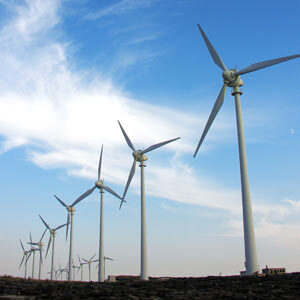Physical Address
304 North Cardinal St.
Dorchester Center, MA 02124
Physical Address
304 North Cardinal St.
Dorchester Center, MA 02124
Download Citation
A sociologist looks at energy. Not oil, not nuclear, but renewable. Solar panels, wind, geothermal, these are all part of a decentralization of power generation. When every home has its own energy generating power plant we won’t be dependent on big power producers. This may mean less mega profits for a few, but the decentralization and democratization of energy needs to happen.
Timothy McGettigan
 On Wednesday (3/30/11), Barack Obama announced a plan to cut US petroleum imports by as much as 33% by the year 2021. Now, that’s what I call leadership. Many of America’s biggest problems–terrorism, despotic oil tyrants, trade imbalances, etc.–are linked to over-dependency on foreign petroleum.
On Wednesday (3/30/11), Barack Obama announced a plan to cut US petroleum imports by as much as 33% by the year 2021. Now, that’s what I call leadership. Many of America’s biggest problems–terrorism, despotic oil tyrants, trade imbalances, etc.–are linked to over-dependency on foreign petroleum.
Obama’s plan to reduce oil imports is based largely upon commitments to increase domestic petroleum production and energy conservation. OK, more efficient cars and better insulated homes will certainly cut energy waste. Also, I think Obama’s proposal to invest in biofuels has some merit, although I do not share Obama’s optimism about offshore oil production. Events last summer demonstrated that offshore petroleum production is far from a panacea. Hopefully, at the very least, Obama will take the precaution of excluding BP from any new offshore oil development opportunities in the western hemisphere.
Far-reaching as Obama’s new energy vision may be, the current plan has a number of glaring deficiencies. For one, where does renewable energy fit into the picture?
In his 2011 State of the Union address, Barack Obama declared that the US needed to seize this generation’s “Sputnik moment” to ensure that the US will remain a global leader in the years ahead. Obama’s point was that, in the 1950s, the Soviet’s launch of Sputnik signaled that the US was being eclipsed by its competitors in the struggle for global supremacy. In response, this initiated an unprecedented commitment to technological advancement in the form of the space race. In short, JFK declared that the US would go where no one else had gone before: the US would be the first nation to land space-travelers on the moon. As we know from history, the US won that race and, in doing so, laid the technological groundwork to claim leadership in the information society on terra firma.
Thus, America’s original Sputnik moment enabled the the US to secure its position as a global leader in the twentieth century. In the twenty-first century, the US faces a whole new range of challenges in a much-altered global village. Consequently, President Obama has asserted that the time has arrived for the US to reassert its claim to global leadership by embracing a new Sputnik moment. In other words, the US needs to identify a new aspiration that will enable it, once again, to outdistance its global competitors. The only thing lacking from President Obama’s State of the Union Address was a description of a specific event, or better still, an emergency–such as the Soviet’s launch of Sputnik–around which to unify and motivate the American public.
Although I have an affinity for space exploration, I would argue that Obama’s Sputnik Moment, should he choose to seize it, is renewable energy development. As Obama has been saying since he was a candidate for president in 2008, it is high time for the US to end–not merely cut back on–its dependence on foreign oil. Quite simply, dependency on foreign oil causes the US nothing but huge expense, embarrassment (shouldn’t we be able to look after our own energy needs?) and hassles with often-fractious oil-producing nations. Who needs the headaches.
If we want to put an end to the stranglehold that petty oil tyrants and their terrorist cousins have over the US, then all we will need to do is create a new energy future. And, when I use the words “new energy future,”, I am unequivocally not suggesting that the US should make huge investments in nuclear fission technology. As the Fukushima Daiichi disaster has illustrated so tragically and emphatically, nuclear fission is old, dirty, dangerous technology. Therefore, nuclear fission should not be part of America’s new energy future.
In my opinion, a new energy future means that the US should commit itself, as it did with its conquest of the moon, to very literally going where no one else has gone before. More specifically, there are a wide range of technologies (such as, heliostat solar, orbital solar, nanotech solar, wind, wave, fusion, etc.) that are just beyond our fingertips and that would provide extraordinary new, clean, green, and abundant energy in order to power an energy-independent future. Indeed, the only thing that’s preventing the US from creating entirely new breeds of renewable energy is a sufficient sense of urgency and strong, focused leadership.
JFK used his Sputnik moment to secure America’s leadership into the twenty-first century, can Barack Obama seize his Sputnik moment to ensure America’s ongoing leadership as we speed toward the twenty-second century?
It’s merely a question of leadership. The moment is at hand.